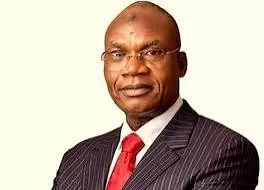
TINUBU ORDERS REVIEW OF APPOINTMENTS INTO GOVERNING BOARDS OF TERTIARY INSTITUTIONS
Inconsistencies in the recent appointments to governing boards of tertiary institutions has prompted President Bola Tinubu to order a total and comprehensive review of the process.
The President, through his media aide, Bayo Onanuga on Thursday, said the review should be effected before the inauguration and retreat being planned for the nominees.
Recall that following threats by the Academic Staff Union of Universities (ASUU) to embark on strike over the alleged delays in constituting governing councils, the Federal Ministry of Education had recently released names of nominees for chairmen, Pro-Chancellors, and members of the boards and councils of universities, polytechnics, and colleges of education.
The Ministry under the purview of Mamman Tahir was also planning a retreat for the nominees and had also announced that the inauguration will take place on 31 May.
The latest directive from the Presidency may have been ignited by public reactions.
It was alleged that the nominations did not reflect the Federal Character principle as some states got just one nomination, while some others got many.
In directing a complete review of the list of members, Tinubu acknowledged the feedback across the country.
Onanuga said Tinubu is committed to ensuring strict compliance with the principle of Federal Character as entrenched in the Constitution.“The review will also take into consideration national spread and ensure every part of the country is adequately represented,” Tinubu’s Special Adviser on Information and Strategy stated.
 Premium News
Premium News